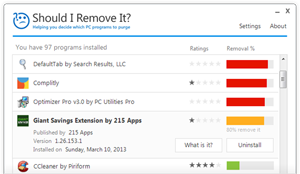Import table
advapi32.dll
InitializeSecurityDescriptor, RegQueryInfoKeyW, OpenProcessToken, LookupPrivilegeValueW, RegCloseKey, SetSecurityDescriptorDacl, AdjustTokenPrivileges, RegQueryValueExW, RegOpenKeyExW
kernel32.dll
GetFileAttributesW, LoadLibraryW, GetModuleHandleW, GetVersionExW, WideCharToMultiByte, VirtualFreeEx, GetCurrentProcess, ReadProcessMemory, CreateRemoteThread, WaitForSingleObject, WriteProcessMemory, OpenProcess, VirtualAllocEx, SetEvent, Module32FirstW, Module32NextW, GetFileSize, CreateEventW, MapViewOfFile, UnmapViewOfFile, GetSystemDirectoryW, CreateToolhelp32Snapshot, ReadFile, CreateFileMappingW, DuplicateHandle, TerminateThread, EnterCriticalSection, LeaveCriticalSection, GetCurrentProcessId, InitializeCriticalSection, InterlockedDecrement, GetModuleFileNameW, FreeLibrary, SetCurrentDirectoryW, GetCurrentDirectoryW, InterlockedIncrement, DisableThreadLibraryCalls, VirtualQuery, VirtualAlloc, GetTickCount, Sleep, VirtualFree, HeapFree, GetProcessHeap, GetSystemTimeAsFileTime, GetCurrentThreadId, QueryPerformanceCounter, IsDebuggerPresent, SetUnhandledExceptionFilter, MultiByteToWideChar, GetLastError, FindResourceExW, DeleteCriticalSection, CreateFileW, CloseHandle, GetProcAddress, RaiseException, SizeofResource, LoadResource, UnhandledExceptionFilter, TerminateProcess, InterlockedCompareExchange, GetThreadLocale, GetLocaleInfoA, GetACP, InterlockedExchange, GetVersionExA, HeapSize, LockResource, HeapReAlloc, HeapAlloc, HeapDestroy, FindResourceW
msvcp80.dll
DllMain
msvcr80.dll
DllMain
ole32.dll
CoCreateInstance, CoFreeLibrary, CoLoadLibrary
shlwapi.dll
PathStripPathW
user32.dll
UnregisterClassA
Export table
DllCanUnloadNow
DllGetClassObject
NxKPex
NxRkGetState
NxRkInitialize
NxRkQuarantine
NxRkSetState
NxRkShutdown
NxRkWakeUpScanner

